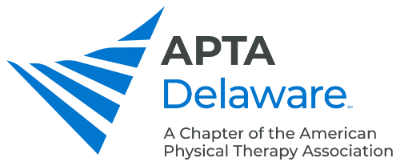After falling short by the narrowest of margins in 2015, an APTA-supported bill to end the Medicare therapy cap has been reintroduced in both houses of Congress. And now it’s time for the physical therapy community to make its voice heard.
The bill, named the Medicare Access to Rehabilitation Services Act (HR 807, S 253) would repeal the therapy cap once and for all, ending a battle that has taken place almost every year since the adoption of the 1997 Balance Budget Act. Representatives Erik Paulsen (R-MN), Ron Kind (D-WI), Marsha Blackburn (R-TN), and Doris Matsui (D-CA) introduced the legislation in the US House of Representatives. In the Senate, the bill was introduced by Sens Ben Cardin (D-MD), Susan Collins (R-ME), Dean Heller (R-NV), and Bob Casey (D-PA).
The cap, which imposes a $1,980 therapy limit on physical therapy and speech-language pathology services (as well as a separate $1,980 cap on occupational therapy services) provided to Medicare beneficiaries, has remained a central focus of APTA’s public policy advocacy efforts since its introduction. In 2015, support for ending the cap reached its highest level yet, when repeal efforts were backed by 238 cosponsors in the House but came up 2 votes short in the Senate. The vote was part of a legislative package that ended the flawed “sustainable growth rate” policy that regularly required damaging payment cuts, avoided only by nearly annual ad-hoc “doc fix” legislation.
What remained was the cap, accompanied by an exceptions process that is set to end on December 31, 2017. After that—and barring repeal—the full force of the cap returns, and more than 1 million beneficiaries in need of rehabilitation could experience severe limitations to access.
“We have always viewed the SGR and therapy cap as linked concepts in the sense that both put significant obstacles in the way of providing the best patient care,” said Michael Matlack, APTA’s director of congressional affairs. “While we had hoped that both would be ended in 2015, the repeal of SGR has cleared a path for success and set the stage for what is truly the next step in improving the lives of people in need of rehabilitation.”
While repeal of the cap gained wide support in Congress in 2015, there is no guarantee that the bill will achieve the same backing in the current Congress. That’s where the physical therapy community plays a crucial role, and APTA is urging its members as well as patients and supporters of physical therapy to make their voices heard.
That effort is made easier thanks to APTA resources. Members can email their legislators by way of APTA’s Legislative Action Center, while nonmembers and patients can use the APTA Patient Action Center. Adding to the convenience, APTA’s action app can make advocacy as simple as a few taps on your smartphone.
“The reintroduction of the therapy cap repeal is exciting news, but it’s also our cue to focus our energies on seeing to it that members of Congress understand the need for this change,” said APTA Chief Executive Officer Justin Moore, PT, DPT. “We must get involved now by contacting our members of Congress, and we need to stay engaged throughout the legislative process and be ready to act quickly as the bill makes its way through the legislative process. We could be on the edge of an historic moment in the profession, but that moment will only arrive if we speak up.”
